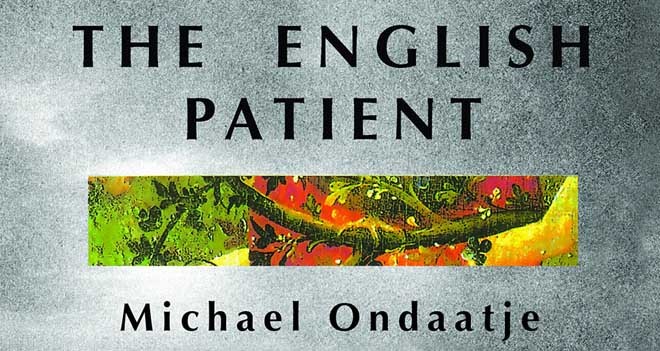
Goddamit -- why did I ever read ‘The English Patient’

"She had grown older. And he loved her more now than he had loved her when he understood her better. What she was now was what she herself had decided to become."
I love Michael Ondaatje not only because his worldview is shaped by the same space -- Sri Lanka -- where my boyhood was spent by a ceaseless seashore. Or because of the same unhealthy obsession about how we use nostalgia and memory to our ends (though God knows these alone are reasons enough). But in no small measure because of his lyricism and sensuous prose. It’s easy to fool yourself you’re reading poetry, not prose. That he’s as accomplished a poet as he’s a novelist tells you how he does it.
Even among the most beauteous of his novels it is the story of The English Patient that is almost too beautifully told to bear, thick as it is with Ondaatje’s trademark emotion and description of the invisible -- the illogic logic of the inner mind and hidden depths of the heart.
"Don’t we forgive everything of a lover? We forgive selfishness, desire, guile. As long as we are the motive for it."
His 1992 Booker winner novel comes with a set of four unforgettable characters and the intersection of their damaged lives in an Italian villa at the end of World War II. Hana, the exhausted nurse; Caravaggio, the maimed thief; and Kip, the wary Sikh sapper -- all haunted by the riddle of the nameless burned, immobile man -- the ‘English Patient’ -- who lies in an upstairs room and whose memories of passion, betrayal and redemption make the story shimmer.
"Her life with others no longer interests him. He wants only her stalking beauty, her theatre of expressions. He wants the minute secret reflection between them, the depth of field minimal, their foreignness intimate like two pages of a closed book."
Read also: ‘Ayama’, criticising the institution of Maulviyat
Who could the ‘English Patient’ be? Brought to the villa after being rescued in the deserts of Libya by natives -- but burnt to all but a cinder after the plane he’s flying with a mysterious woman is brought down by enemy gunfire. Hana takes care of him, slowly falling in love with this sad enigma who refuses to talk about himself or why he is in a hurry to die.
"You have to protect yourself from sadness. Sadness is very close to hate. This is the thing I learned. If you take in someone else’s poison -- thinking you can cure them by sharing it -- you will instead store it within you."
Slowly, through Caravaggio who is dependent on Hana for pinches of a dwindling supply of morphine to kill his pain, we learn the patient is Saharan explorer and cartographer Almasy, a Hungarian who worked for the Germans. He betrayed his country to court Katharine, who’s on the plane with him when it comes down. How he got the plane and where he picked her up is for you to find out but be prepared to go to pieces in the process.
"There are betrayals in war that are childlike compared with our human betrayals during peace. The new lovers enter the habits of the other. Things are smashed, revealed in a new light. This is done with nervous or tender sentences, although the heart is an organ of fire."
This book changed me because all those years ago when I first read it I discovered patriotism is a superficial construct and no match for passion which both gives you everything and takes everything away from you. And also because the book contains, via Kip the sapper, descriptions of a Lahore of my orphan father Rehmat Ullah Khan’s time when he was himself learning to battle the demons of partition. But mostly because it is the most unusual of love stories.
The story begins at the end -- the love of his life that Almasy is flying in the plane is already dead. His rescue of her coming too late but not late enough for him to grant her last wish to fly with him with the wind in her hair. When he crashes his survival state doesn’t allow him to be able to commit suicide to be with her. A big part of the story is his slow persuasion of Hana to help him do it.
"Every night I cut out my heart. But in the morning it was full again."
Goddamit -- why did I ever read this book…..